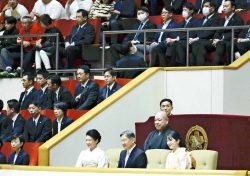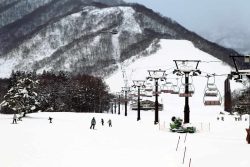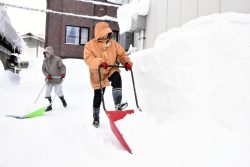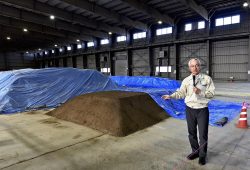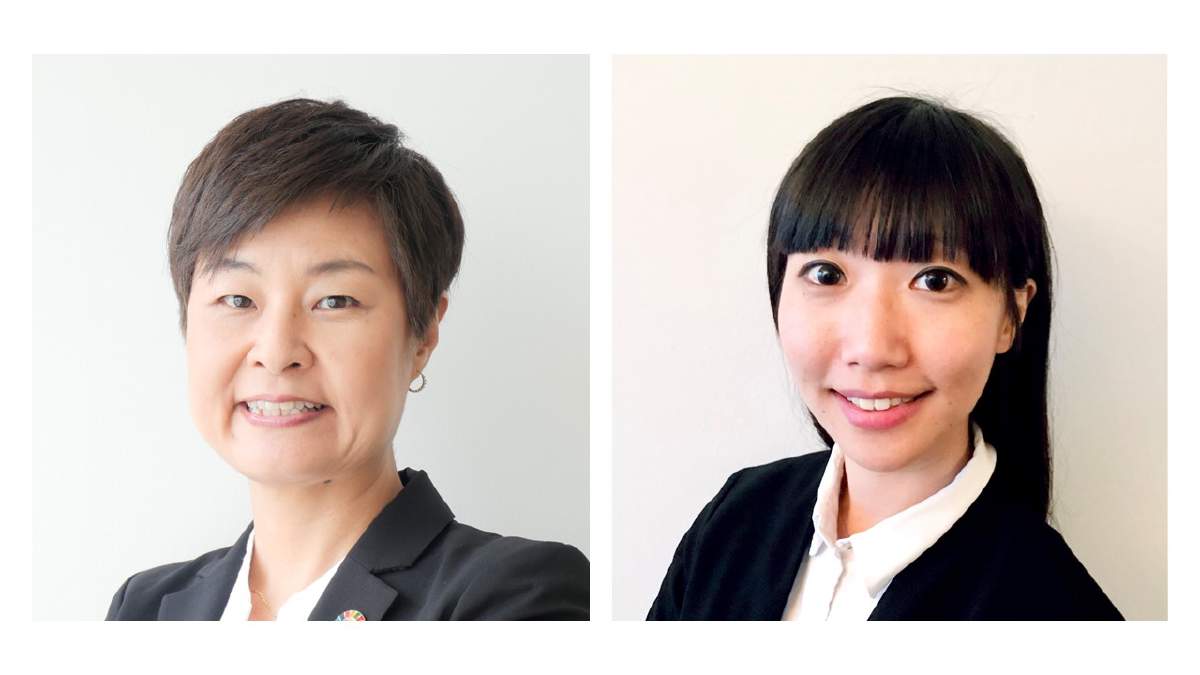
Jonghwi Park, left, and Ying-Syuan (Elaine) Huang
11:01 JST, August 23, 2023
For many, 1.1 degrees Celsius of warming and 9.8 centimeters of sea level rise are mere statistics mentioned in the media. However, behind these numbers, tragic events are unfolding, and climate change has a devastating impact on millions of human lives worldwide. Recent global records indicate that in 2020 alone, weather-related disasters displaced over 30 million individuals, outnumbering conflict-related displacement by three times. The Asia-Pacific accounts for 80% of these climate-related displacements, making the region most vulnerable to climate displacement to date.
A new study by the United Nations University Institute for the Advanced Study of Sustainability (UNU-IAS) in Tokyo and the United Nations Educational, Scientific and Cultural Organization (UNESCO) sheds light on the diverse climate displacement scenarios faced by the Asia-Pacific region. One is forced displacement by rapid or sudden impacts such as landslides, storms and floods. Another is seasonal and voluntary migration within or across national borders due to slow-onset impacts, such as sea level rise, excessive heat and land inundation. There is also government-led relocation in the areas where climate change effects become unavoidable. Each scenario creates unique challenges for ensuring that children and adults can continue their education and lifelong learning without disruption.
Education matters
Education is a fundamental human right. For those forced to relocate due to climate change, opportunities to develop skills and knowledge become crucial for rebuilding their lives in new environments. Unfortunately, this has not always been the case. In 2020, for example, the central region of Vietnam was hit by seven consecutive tropical storms and cyclones within a period of six weeks. Sustained heavy rain caused devastating landslides and historic floods, leaving 243 people dead and missing, 7.7 million people affected — including 2.5 million children — and 862 schools damaged. A similar situation occurred during the 2022 Pakistan floods, with more than 18,000 schools damaged or destroyed, leaving millions of students outside classrooms.
Such disruptions and school closures increase the risk of dropouts among secondary students, particularly those from marginalized communities, exacerbating their social and economic vulnerability. They end up leaving schools without proper skills and knowledge, trapped in informal sector work or even becoming subject to human trafficking or labor exploitation, perpetuating poverty. Moreover, girls who leave school early often face early marriage, further limiting their chances of returning to education due to childbirth and household responsibilities.
Adults facing displacement encounter similar challenges. In the research conducted by UNU-IAS and UNESCO, both voluntarily migrated and forcibly displaced adults in Bangladesh and Indonesia expressed acute needs for job training for reskilling and upskilling. In countries like India and Indonesia, where numerous languages are spoken, a lack of language skills becomes a barrier to accessing further training and employment opportunities.
In case of cross-border displacement, the situation is worse. Unlike refugees and migrants affected by conflicts and war, there is currently no international convention or legal framework in place for recognizing the status and rights of climate-displaced persons. This means that a host country can deny their right to access education anytime.
Urgent action needed
Climate change is already happening, and climate-induced displacement is projected to increase significantly. In fact, it is estimated that by 2050, just five South Asian countries (Bangladesh, India, Nepal, Pakistan and Sri Lanka) could see up to 62 million displaced individuals due to the impacts of climate change.
Immediate and urgent action is needed at the international and national levels to tackle issues related to climate change displacement. Efforts should focus not only on adapting the education sector to be safer and more resilient to climate impacts, but also on positioning education at the center in mitigating further climate change.
First, there is a critical need for international conventions to recognize the rights of individuals forcibly displaced by climate change impacts, often referred to as “climate refugees.” While the 1951 Convention Relating to the Status of Refugees provides a legal framework for those displaced by conflict or war, it does not apply to those displaced by climate change. Discussion has been progressing since 2012 through the Nansen Initiative, but a concrete framework for granting legal protection to climate migrants is yet to be agreed. In addition, rigid eligibility criteria imposed by some host countries, such as high proficiency in English or specific skill requirements, further exacerbate the inequality of vulnerable populations in small island states like Nauru and Tuvalu and many other developing countries.
Second, national decisions on where to build and relocate schools, how to deploy teachers and whom to prioritize in emergency aid should be data-driven. Numerous studies on climate change displacement underscore the lack of data, an issue that needs to be addressed to improve the resilience of the education sector. Harmonizing interdisciplinary and multi-sourced data can help governments to project and model the potential influx and outflux of the children and adults, which is critical for informed decision-making for educational provision. This could include real-time updates through Geographic Information Systems (GIS) on the patterns of slow onset impacts (e.g., sea level rise, desertification, land inundation), education enrolment data, and mobile Big Data of displaced persons.
Third and finally, education should play a central role in empowering individuals to be fully aware of the causes and consequences of climate change and to be part of solutions to climate change, as emphasized in Article 6 of the Paris Agreement. This requires promptly developing and providing climate change literacy for all. It should be noted that, while climate change affects everyone everywhere, the causes and phenomena vary across different geographical, economical and meteorological contexts. Therefore, climate literacy must be tailored to the specific needs and situations of each community.
The urgency of addressing the education challenges faced by climate change displaced persons can no longer be overlooked. International solidarity, data-informed mitigation and adaption, and climate change literacy are first steps among many to follow. It is only through these crucial actions that education can become a catalyst for resilience, empowerment and sustainable solutions in the face of climate change.
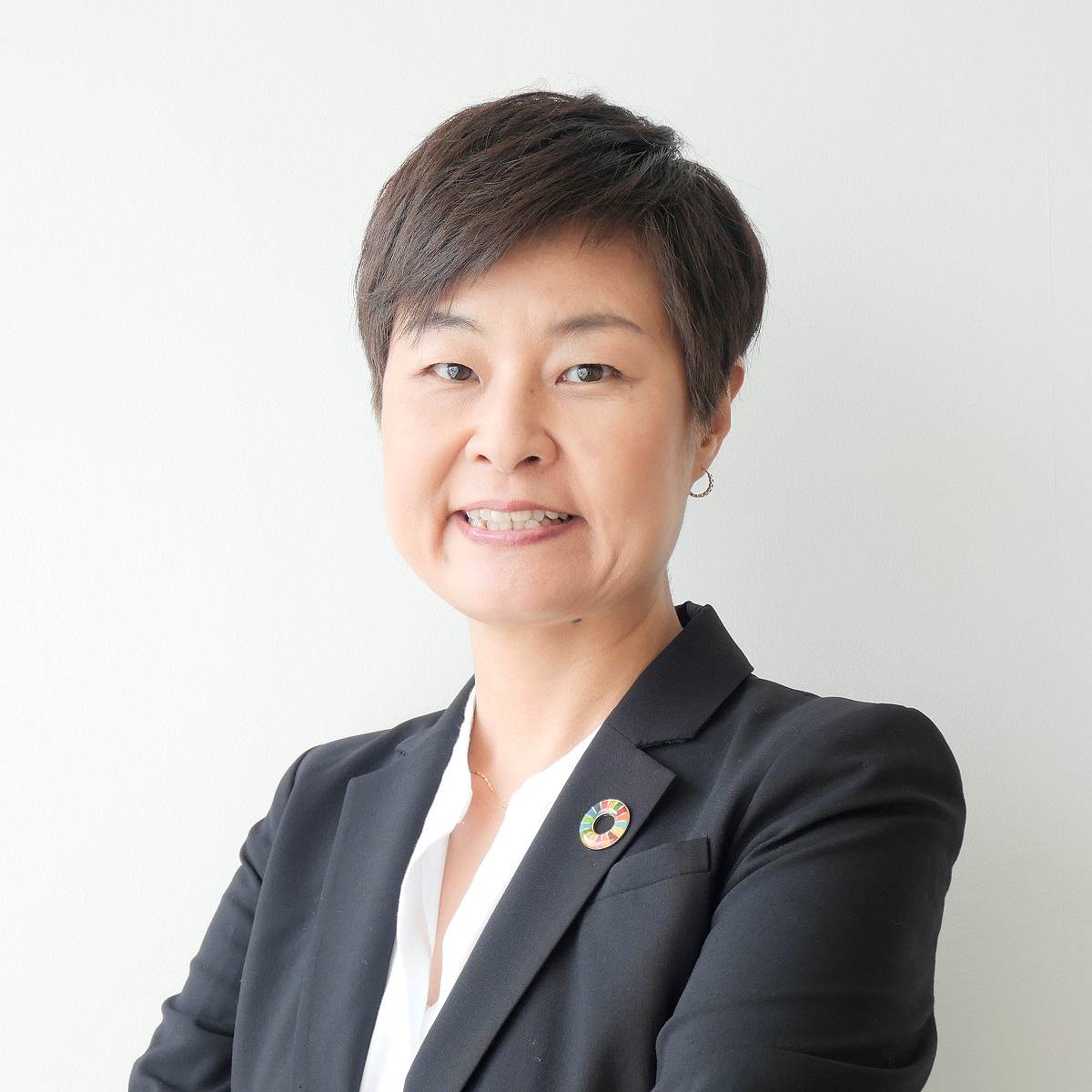
Jonghwi Park
Academic Program Officer and Head of Innovation and Education at UNU-IAS in Tokyo
Since joining in October 2020, Park leads a new thematic program that promotes the innovative and inclusive use of technology to provide lifelong learning opportunities for sustainable development.

Ying-Syuan (Elaine) Huang
Postdoctoral researcher at the Faculty of Education at McGill University in Canada
Huang joined the Innovation and Education program as an independent researcher at UNU-IAS focusing on promoting the right of education for climate-displaced populations.
Top Articles in Editorial & Columns
-

40 Million Foreign Visitors to Japan: Urgent Measures Should Be Implemented to Tackle Overtourism
-

China Criticizes Sanae Takaichi, but China Itself Is to Blame for Worsening Relations with Japan
-

Withdrawal from International Organizations: U.S. Makes High-handed Move that Undermines Multilateral Cooperation
-

University of Tokyo Professor Arrested: Serious Lack of Ethical Sense, Failure of Institutional Governance
-

Defense Spending Set to Top ¥9 Trillion: Vigilant Monitoring of Western Pacific Is Needed
JN ACCESS RANKING
-

Univ. in Japan, Tokyo-Based Startup to Develop Satellite for Disaster Prevention Measures, Bears
-

JAL, ANA Cancel Flights During 3-day Holiday Weekend due to Blizzard
-

Japan Institute to Use Domestic Commercial Optical Lattice Clock to Set Japan Standard Time
-

China Eyes Rare Earth Foothold in Malaysia to Maintain Dominance, Counter Japan, U.S.
-

Japan, Qatar Ministers Agree on Need for Stable Energy Supplies; Motegi, Qatari Prime Minister Al-Thani Affirm Commitment to Cooperation







